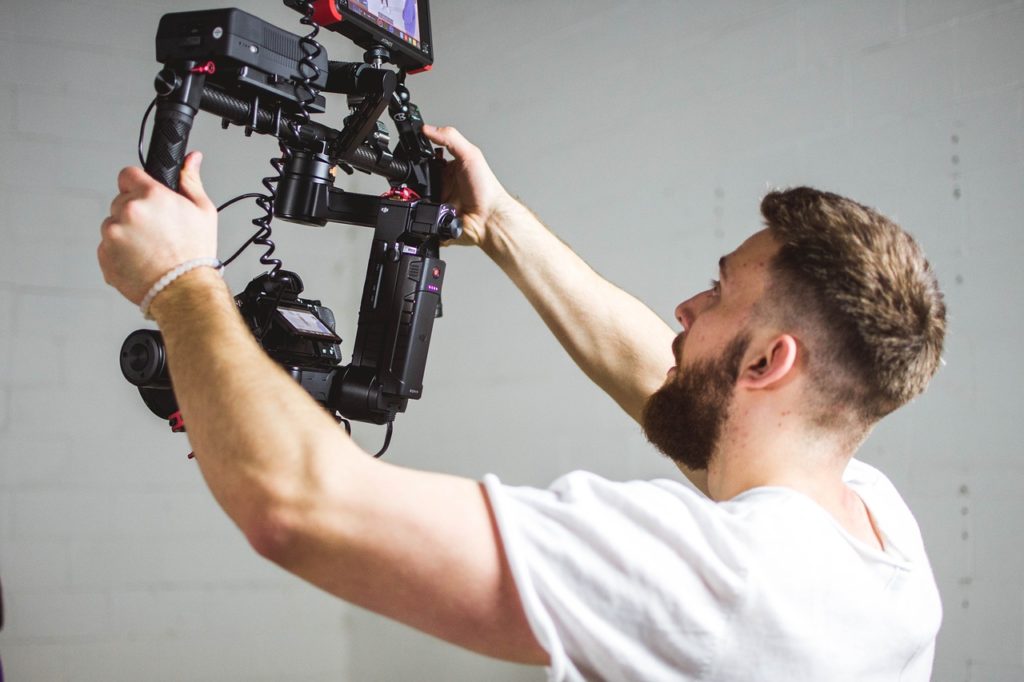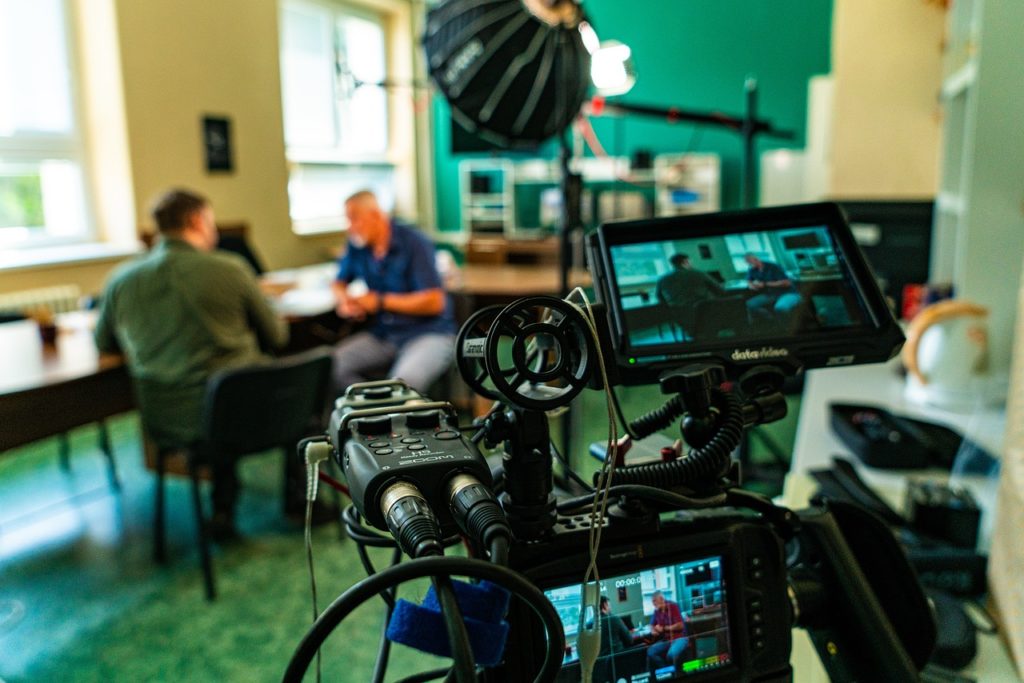Overview of Filmmaking as a Hobby
Filmmaking is a form of artistic expression that has been around for over a century. With the advent of digital technology, the ability to create films has become more accessible than ever. As a result, many people have begun to take up filmmaking as a hobby.
Filmmaking can be a rewarding and fulfilling hobby for those who have a passion for storytelling and visual art. It allows individuals to express themselves in a creative and unique way, and to share their stories with others.
One of the most exciting aspects of filmmaking as a hobby is the endless possibilities for creativity. Filmmakers can tell any story they want, in any style they choose. They can use a variety of different techniques, such as special effects, music, and editing, to bring their stories to life.
Another great thing about filmmaking as a hobby is that it can be done by anyone, regardless of age or experience level. With the right tools and a little bit of creativity, anyone can create their own films. There are even online tutorials and classes that can help beginners learn the basics of filmmaking.
However, like any hobby, filmmaking requires dedication and hard work. Filmmakers need to be willing to put in the time and effort to create high-quality films. This may involve writing scripts, scouting locations, casting actors, and more. It can be a challenging and time-consuming process, but the end result can be incredibly rewarding.

In addition to the personal satisfaction of creating films, there are also many opportunities for filmmakers to share their work with others. Many film festivals and online platforms, such as YouTube and Vimeo, allow filmmakers to showcase their work to a wider audience. This can be a great way for filmmakers to get feedback on their work and to connect with other people who share their passion for filmmaking.
Overall, filmmaking is a fascinating and rewarding hobby that offers endless possibilities for creativity and self-expression. Whether you are a beginner or an experienced filmmaker, there is always something new to learn and explore in the world of filmmaking. So why not give it a try and see where your creativity takes you?
Is filmmaking an expensive hobby?
Filmmaking is often seen as a costly hobby, with the high price of equipment and the need for a team of people to bring a project to life. However, there are also ways to make filmmaking more affordable, allowing even those on a tight budget to pursue their passion for creating films.
One of the biggest expenses in filmmaking is the equipment. Professional cameras, lenses, lighting, and sound equipment can all add up quickly, with some individual items costing thousands of dollars. However, it is possible to find more affordable options, such as using a smartphone or a more budget-friendly camera or renting equipment rather than buying it outright.
Another expense in filmmaking is the cost of hiring a team. Actors, crew members, and other professionals can all add to the cost of a project, especially if the film is being produced on a larger scale. However, there are also ways to bring down these costs, such as working with volunteers or aspiring filmmakers who are willing to work for a lower rate or for the experience.
In addition to these costs, there are also other expenses to consider, such as transportation, location fees, and post-production costs. However, these costs can also be minimized by being creative and resourceful. For example, using a local park or a friend’s house as a location, or using free or low-cost software for editing and special effects.
Overall, while filmmaking can be an expensive hobby, it is possible to bring down the cost through careful planning and budgeting. By being creative and resourceful, aspiring filmmakers can pursue their passion without breaking the bank.

What equipment do I need to start filmmaking?
To get started with filmmaking as a hobby, you will need a few basic pieces of equipment. These include a camera, a tripod, a microphone, and a computer for editing. A camera is the most important piece of equipment, as it is the tool you will use to capture the footage for your films. A tripod will help keep your camera steady and prevent shaky footage, while a microphone will help capture high-quality audio. Finally, a computer with video editing software will allow you to edit and post-process your footage to create polished, professional-looking films.
Famous Movie and Director Facts
There are many famous movies and directors throughout film history. Some notable examples include:
- “Citizen Kane” is often considered one of the greatest films ever made, and was directed by Orson Welles.
- Stanley Kubrick is considered one of the most influential directors of all time, and his films include classics like “2001: A Space Odyssey” and “A Clockwork Orange“.
- Alfred Hitchcock is another highly regarded director, known for suspenseful films like “Psycho” and “Rear Window“.
- Steven Spielberg is a highly successful and acclaimed director, known for blockbusters like “Jaws” and “E.T. the Extra-Terrestrial“.
- Martin Scorsese is another famous director, known for crime dramas like “Goodfellas” and “The Departed“.
These are just a few examples of famous movies and directors. There are many more out there, and the world of film is constantly changing and evolving.
FAQs about Filmmaking
- What is filmmaking? Filmmaking is the process of creating films, which includes writing the script, casting actors, filming scenes, editing the footage, adding music and sound effects, and ultimately creating a finished product that can be shown in theaters or on television.
- What are the different types of films? There are many different types of films, including drama, comedy, action, horror, documentary, animated, and experimental.
- What is pre-production? Pre-production is the stage of filmmaking that takes place before filming begins. It involves tasks such as writing the script, scouting locations, casting actors, and planning the shoot.
- What is production? Production is the stage of filmmaking where the actual filming takes place. This involves setting up the camera, lighting the scene, directing the actors, and capturing the footage.
- What is post-production? Post-production is the stage of filmmaking that takes place after filming has finished. It involves tasks such as editing the footage, adding sound effects and music, and color correction.
- What is a screenplay? A screenplay is the written script for a film, which includes dialogue, descriptions of the action, and other important details.
- What is a storyboard? A storyboard is a visual representation of the scenes in a film, created by drawing or sketching the shots that will be included.
- What is a director? A director is the person in charge of the creative aspects of a film, including directing the actors, choosing camera angles, and overseeing the editing process.
- What is a cinematographer? A cinematographer is the person responsible for capturing the footage on camera, including choosing the camera angles, framing the shots, and adjusting the lighting.
- What is a film editor? A film editor is the person who assembles and edits the footage from a film into a finished product, which includes cutting scenes, adding transitions, and adjusting the pacing of the film.
Don’t Forget
As always, if you enjoyed our article or found it helpful then feel free to save our homepage to your favorites for regular topics similar to this one. Also, join our newsletter to get updated on new hobbies or special deals!





